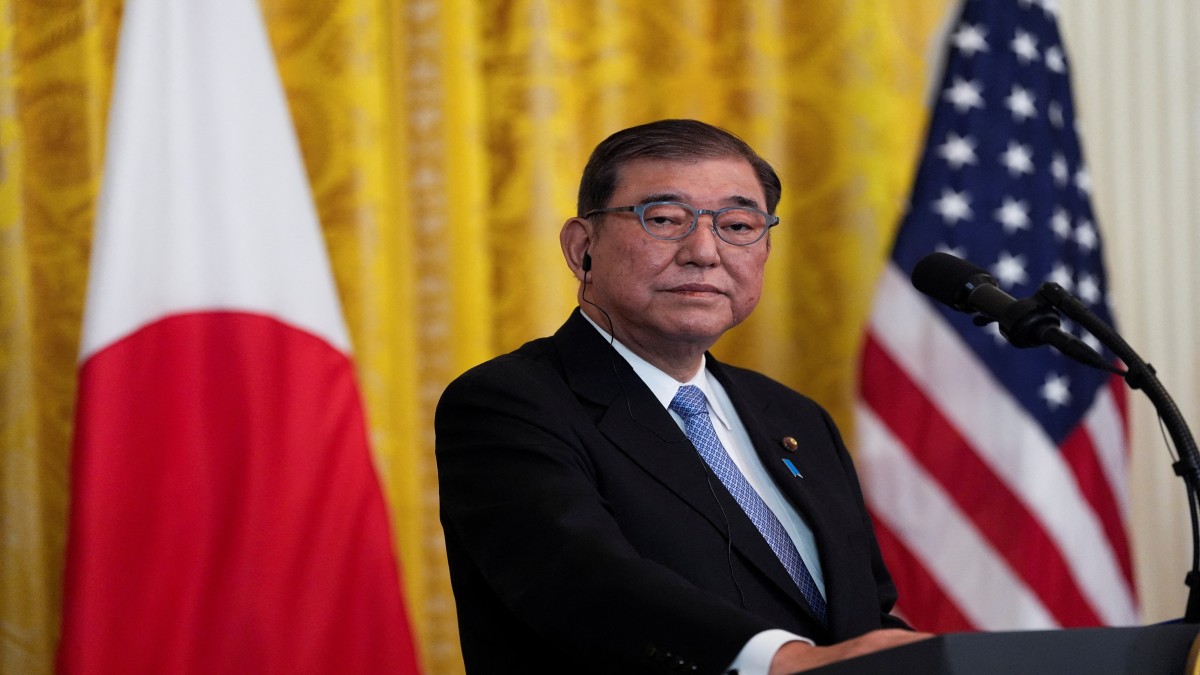Japanese Prime Minister Shigeru Ishiba has found himself in hot water after he distributed gift vouchers to some of his ruling party lawmakers.
The criticism has been significant, despite Ishiba’s assertion that the gesture was a personal gesture of appreciation rather than a political donation.
His already fragile hold on power is now being shaken by the scandal, as public support for him has fallen to an all-time low.
Ahead of the July upper house election, the opposition lawmakers are demanding Ishiba’s resignation, seeing this as a chance to oust him.
Let’s take a closer look.
What’s the gift controversy?
Japanese media reported earlier this week that Ishiba’s aide delivered gift certificates worth 100,000 yen ($670) to 15 first-term lower house lawmakers of his ruling Liberal Democratic Party (LDP) before their private dinner with the prime minister.
The move has drawn criticism as it could violate a political law.
Opposition lawmakers also grilled him over the vouchers, calling for the PM’s resignation.
Speaking at a parliamentary session on Friday, Ishiba repeatedly said the gift did not violate the political funds law or the public election law.
He said he used “pocket money” to hand out gift certificates to the lawmakers as a “show of appreciation” for their hard work getting elected.
He apologised for causing concern and displeasure but said the vouchers were not intended as donations for their political activity and that none of the recipients live in his electoral district. The gift certificates can be used for purchases at department stores in Japan.
Even within the ruling party, the bitter consequences have prompted the 15 lawmakers to return the gift vouchers to Ishiba’s office, according to Japanese media.
Also read: How Japan faces political upheaval after LDP loses majority for first time in 15 years
How has the scandal lowered public support for Ishiba?
Public support for Japanese Prime Minister Shigeru Ishiba’s government dropped to a record low after he handed out gift vouchers, a poll conducted by the Asahi daily newspaper showed on Monday.
Polls conducted on March 15-16 by the Asahi daily newspaper, which broke news of the distributed vouchers, showed the approval rating drop to 26 per cent, a steep decline from 40 per cent in February.
Similarly, other polls by the Yomiuri Shimbun reported a drop from 39 per cent to 31 per cent over the same period.
And the Mainichi newspaper over the weekend also showed public approval for Ishiba’s cabinet fell to a record low.
Reports suggest that the flagging approval ratings could lead to internal pressure on Ishiba to step down before the July upper house elections.
Also read: A Japanese city has hired police to monitor tourist photography. Here’s why
How will this affect the current leadership?
Notably, Ishiba is in charge of a minority government following the defeat of his LDP and its junior coalition partner Komeito in the October election in Japan’s lower house, which is the more powerful of the country’s two chambers of parliament. The LDP is still the biggest party, but it became less cohesive due to its severe defeats.
The gift issue makes things more difficult for PM Ishiba’s minority coalition, which has had to make a few unexpected changes to the government’s budget plan for the fiscal year that starts in April to please opposition parties and make sure that it passes parliament by the deadline of March 31.
Some observers say if the annual budget is not passed in time, the government may be forced to create a stopgap budget, which would harm PM Ishiba’s political reputation and harm the economy by postponing spending plans.
According to the Kyodo news agency, Tetsushi Sakamoto, the chairperson of the LDP’s diet affairs committee, stated on Friday that the gift issue may make it harder to adopt the budget by the end of March.
Earlier this week, ultra-conservative LDP lawmaker Shoji Nishida urged his fellow lawmakers to select a new leader, arguing that Ishiba’s role as the party’s spokesperson would not help the LDP win.
Furthermore, the decline in polls may be a setback for Ishiba’s leadership because Japan will hold elections for the upper house in July, and if PM Ishiba is unable to restore public confidence, which is already damaged by a previous political controversy involving unreported donations to lawmakers, the ruling coalition’s weak majority may also be in jeopardy.
It also occurs at a time when US President Donald Trump’s intensifying trade war is posing challenges to Japan’s economy.
With inputs from agencies


)

)
)
)
)
)
)
)
)



